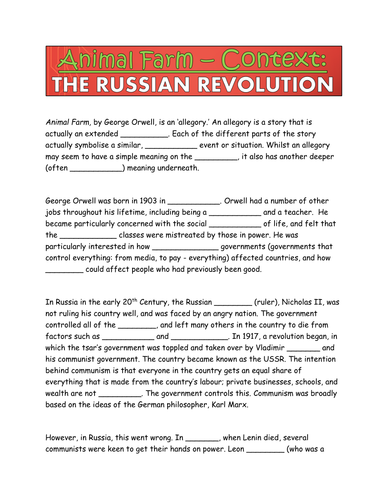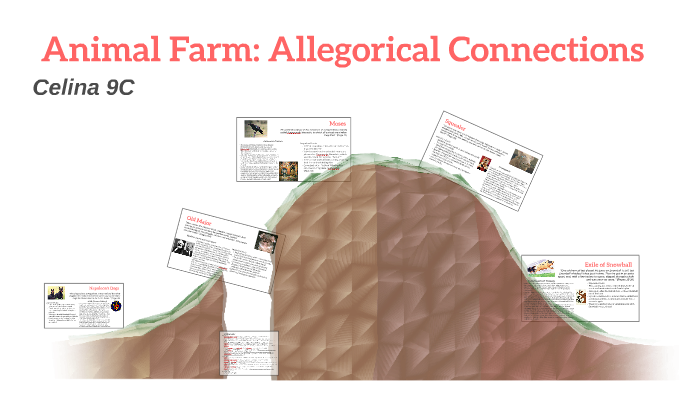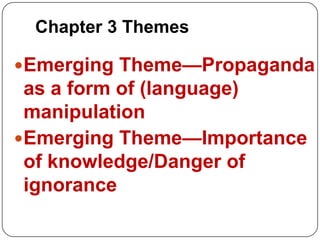Animal Farm, written by George Orwell, is an allegorical novel that uses animals on a farm to represent the Russian Revolution and the rise of the Soviet Union. The characters in the novel, such as the pigs, represent the leaders of the Soviet Union, while the other animals represent the common people.
The novel begins with the old pig, Old Major, who represents Karl Marx, gathering the other animals on the farm to tell them about his dream of a utopian society where all animals are equal and live in harmony. After Old Major's death, two pigs, Napoleon and Snowball, take charge of the farm and begin implementing Old Major's ideas. However, the two pigs quickly become power hungry and begin to manipulate the other animals for their own gain.
One of the main allegorical connections in the novel is the portrayal of the Russian Revolution and the rise of the Soviet Union. The animals on the farm represent the people of Russia, with the pigs representing the leaders of the Soviet Union. The early days of the farm, where the animals work together and follow the principles of animalism, represent the initial ideals of the Soviet Union. However, as the novel progresses, the pigs become more corrupt and begin to betray the principles of animalism, just as the leaders of the Soviet Union betrayed the ideals of communism.
Another allegorical connection in the novel is the portrayal of propaganda and manipulation. The pigs, who are the leaders of the farm, use propaganda to control the other animals and keep them in line. They rewrite history to suit their own purposes and use slogans and propaganda to rally the other animals behind them. This is a clear reference to the way that the leaders of the Soviet Union used propaganda to maintain control over the people.
Overall, Animal Farm is a powerful allegory that uses the story of a group of animals on a farm to represent the Russian Revolution and the rise of the Soviet Union. Through its portrayal of the corrupt pigs and their use of propaganda and manipulation, the novel serves as a cautionary tale about the dangers of unchecked power and the importance of maintaining the principles of equality and justice.







